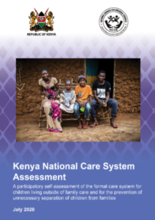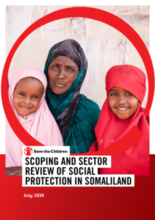Displaying 391 - 400 of 1609
UNICEF is seeking an experienced national consultant to work with and support an international consultant in the facilitation of child protection case management situation analysis, including contextually relevant practical recommendations on the development of a national child protection case management framework and system.
This study examines how food insufficiency relates to HIV infection among caregivers of orphans and vulnerable children (OVC) in Tanzania.
This video series from UNICEF shares the stories of young girls living through COVID-19 – coping with the fears of child marriage, the struggles of distance learning, and the burden of isolation.
This article from PML Daily announces the approval of a new National Child Policy in Uganda.
In this first event of Family for Every Child's How We Care series, Family Members CINDI (South Africa), Conacmi (Guatemala) and Uyisenga Ni Imanzi (Rwanda) shared their approaches and experiences of providing psychosocial support to children and families during the COVID-19 crisis.
This study assesses the magnitude of, and factors associated with undisclosed HIV status to a community-based HIV prevention program among caregivers of orphans and vulnerable children (OVC) in Tanzania.
In this webinar hosted by Better Care Network and the Consortium for Street Children, speakers from three NGOs presented on and discussed the care implications of COVID-19 and responses to the pandemic on street-affected children.
The goal of this paper was to conduct a review of studies from 2008 to 2019 that evaluated community‐based caregiver or family interventions to support the mental health of orphans and vulnerable children (OVC) in sub‐Saharan Africa, across four domains: (a) study methodology, (b) cultural adaptation and community participation, (c) intervention strategies, and (d) effects on child mental health.
This care system assessment is intended to support the Government of Kenya to assess and strengthen the national, formal care system.
This Scoping Study and Sector Review, produced under the guidance of the Ministry of Employment, Social Affairs and Family (MESAF) of Somaliland and Save the Children, is a strategic analysis of the existing policy landscape in Somaliland in order to inform the development of a Social Protection system.


